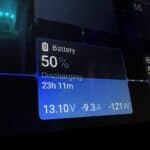
MENUMENU
TALK TO AN EXPERT
Special Hours: 7AM – 6PM PST
TALK TO AN EXPERT
Special Hours: 7AM – 6PM PST
Even the basics of dealing with larger batteries like those found in RVs and boats can feel daunting if you’re not familiar with them. It can seem like there’s a lot to consider–style, capacity, voltage, and, of course, the battery’s group size. But what exactly does group size mean? And why do boaters and RVers so often come across a Group 24 battery specifically?
Get charged up–we’re about to take a closer look.
Group size is a term used in the battery world to refer to specific physical characteristics of a battery that will best fit a given vehicle, both in terms of size, capacity, and the location of terminals.
You’ll generally find the group size for your vehicle’s battery in your owner’s manual or on the current battery’s label. While many applications allow more than one group size, it’s always vital to use one that fits appropriately.
→ Suggested Reading: Battery Sizes Explained: Choosing the Right Size For Your System And Use
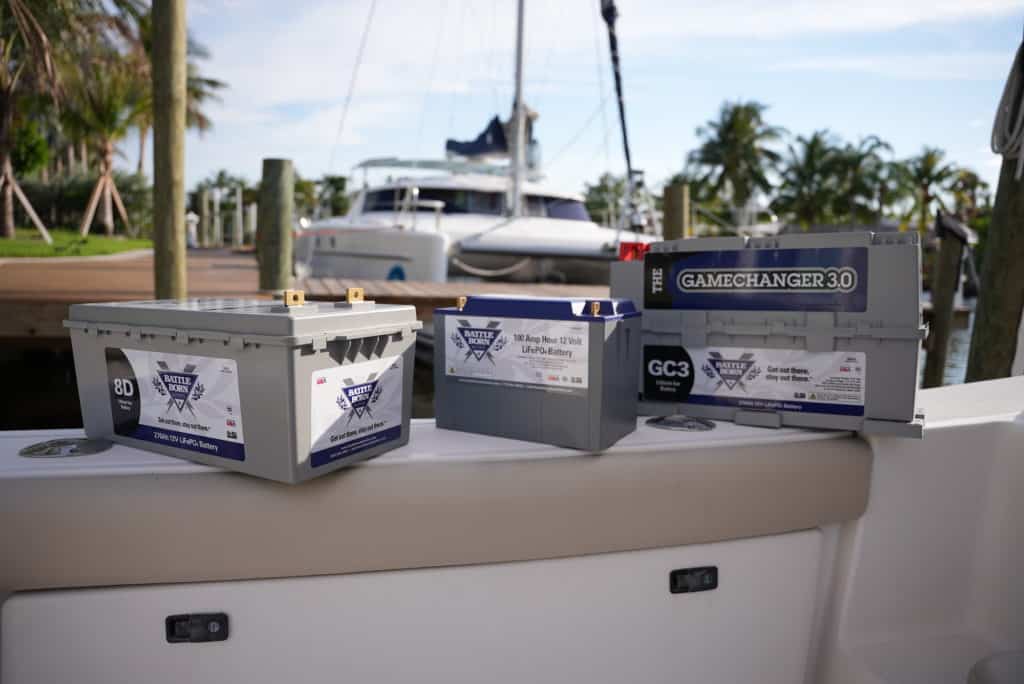
A Group 24 battery is a specific size of battery you’d see in vehicles, backup power systems, and medical systems. Group 24 batteries generally function as deep cycle batteries rather than starting applications where they start an engine.
A standard model measures 10.5” L x 6.1875” W by 8.875” high. They come in several subcategories as well, each with slightly different dimensions. These are known as 24F, 24H, 24R, and 24T. Despite their overall similarity, the subtle variations in size are an important reason to get the correct type. The Battle Born Group 24 size measures 10.49” x 7.11” x 8.95” (L x W x H).
Group 24 batteries are versatile, and you can use them in many applications. These deep-cycle batteries can provide a relatively long-lasting and stable power supply, something particularly useful for RVs, boats, and other mobile power systems.
These batteries are slightly smaller than a 100AH battery and tend to fit in more places and work for smaller spaces or applications that do not need as much stored power.
Since a group 24 battery is just a specific size, their pros and cons are similar to any other deep cycle battery. Being a little smaller, they will have a little less runtime than a larger model but their size also means they are more cost-effective and can fit more places.
Yes, there are! Those who need a Group 24-compatible battery and want to upgrade to lithium-ion have options, including the Battle Born Group 24 Batteries. These batteries are available in both the 50Ah and the 75Ah size.
The Battery Council International designed the traditional group sizes, but this company strictly represents the lead-acid battery industry.
Lithium battery companies understand that many people will be upgrading from these traditionally-sized batteries, therefore they tend to build batteries that are very similar in size to their lead-acid counterparts. Still, you might not find lithium-ion batteries referred to by group size, meaning you’ll need to purchase one with the correct dimensions and other factors.
Battle Born Batteries are a great option for deep cycle applications where space is a premium or not as much capacity is needed.
→ Learn more about our Battle Born Group 24 Batteries
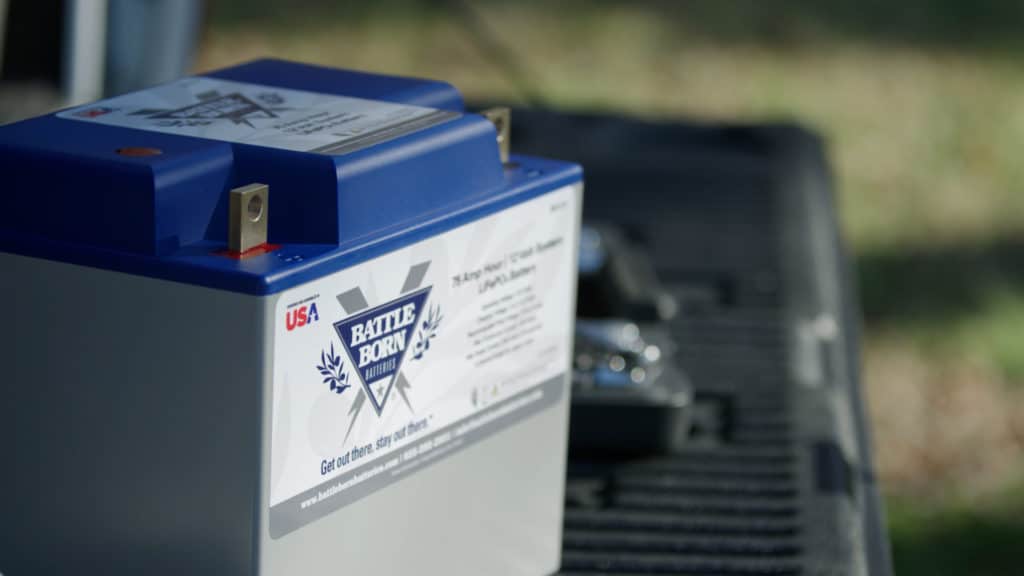
Group 24 batteries mainly show up in vehicles that require an additional power source beyond their typical starting battery. This would include RVs, buses, and trailers where they would function as house batteries. You’ll also find them in boats operating in a similar way.
One popular use of group 24 batteries is to power a kayak trolling motor for kayak fishing or pleasure cruising.
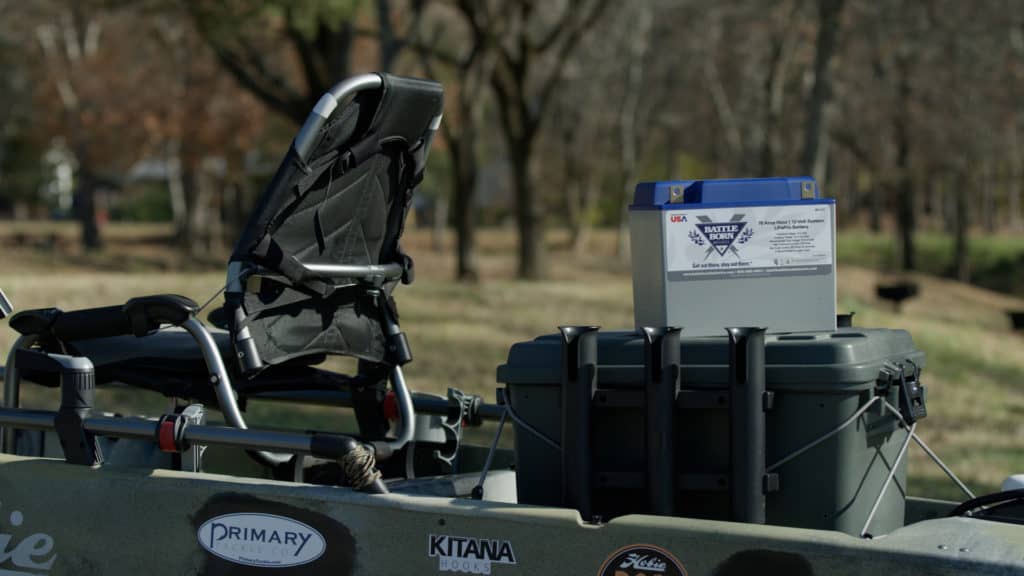
Simply the size. Group 34 batteries are similar in size but one inch shorter, measuring 7.875in tall rather than 8.875in tall.
To a certain extent, you may use different group types for the same application, however, the replacement battery of a different group must meet several criteria.
For starters, batteries should fit snugly in their place, so batteries that are physically larger or smaller won’t work without considerable modifications to your vehicle. You also want to make sure your voltage and capacity needs line up when using a different group size.
You should have relatively little trouble using group sizes interchangeably if all of this checks out.
All in all, it’s easy to see why many RVs, boats, and other vehicles use a Group 24 battery. These versatile, powerful batteries are among the most common, and for good reason. Keep this information in mind, and your next battery choice or battery replacement won’t leave you feeling powerless.
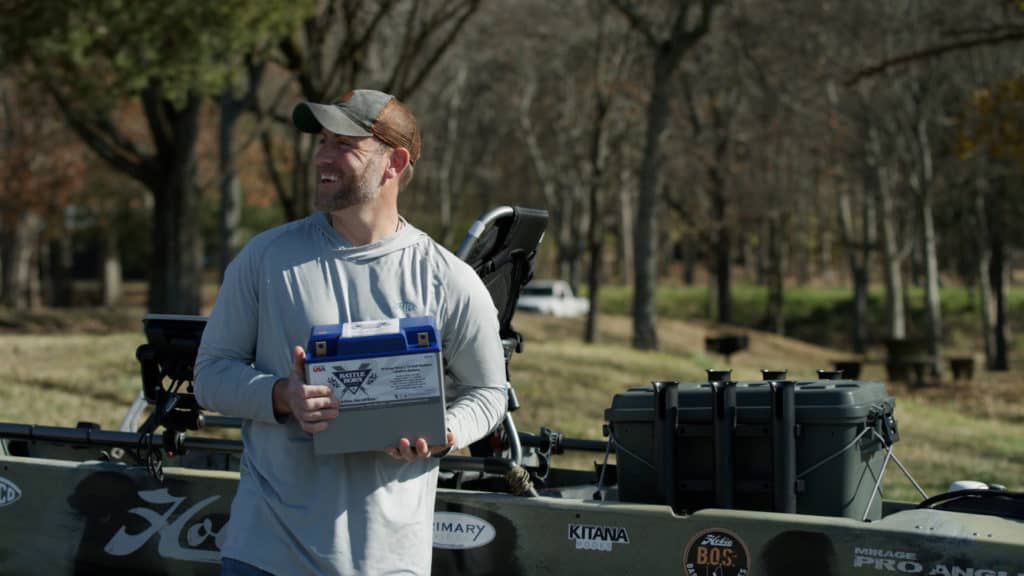
We know that building or upgrading an electrical system can be overwhelming, so we’re here to help. Our Reno, Nevada-based sales and customer service team is standing by at (855) 292-2831 to take your questions!
Also, join us on Facebook, Instagram, and YouTube to learn more about how lithium battery systems can power your lifestyle, see how others have built their systems, and gain the confidence to get out there and stay out there.
Shop Best Sellers








Ask a technical specialist now at 855.292.2831
Stay in the Know